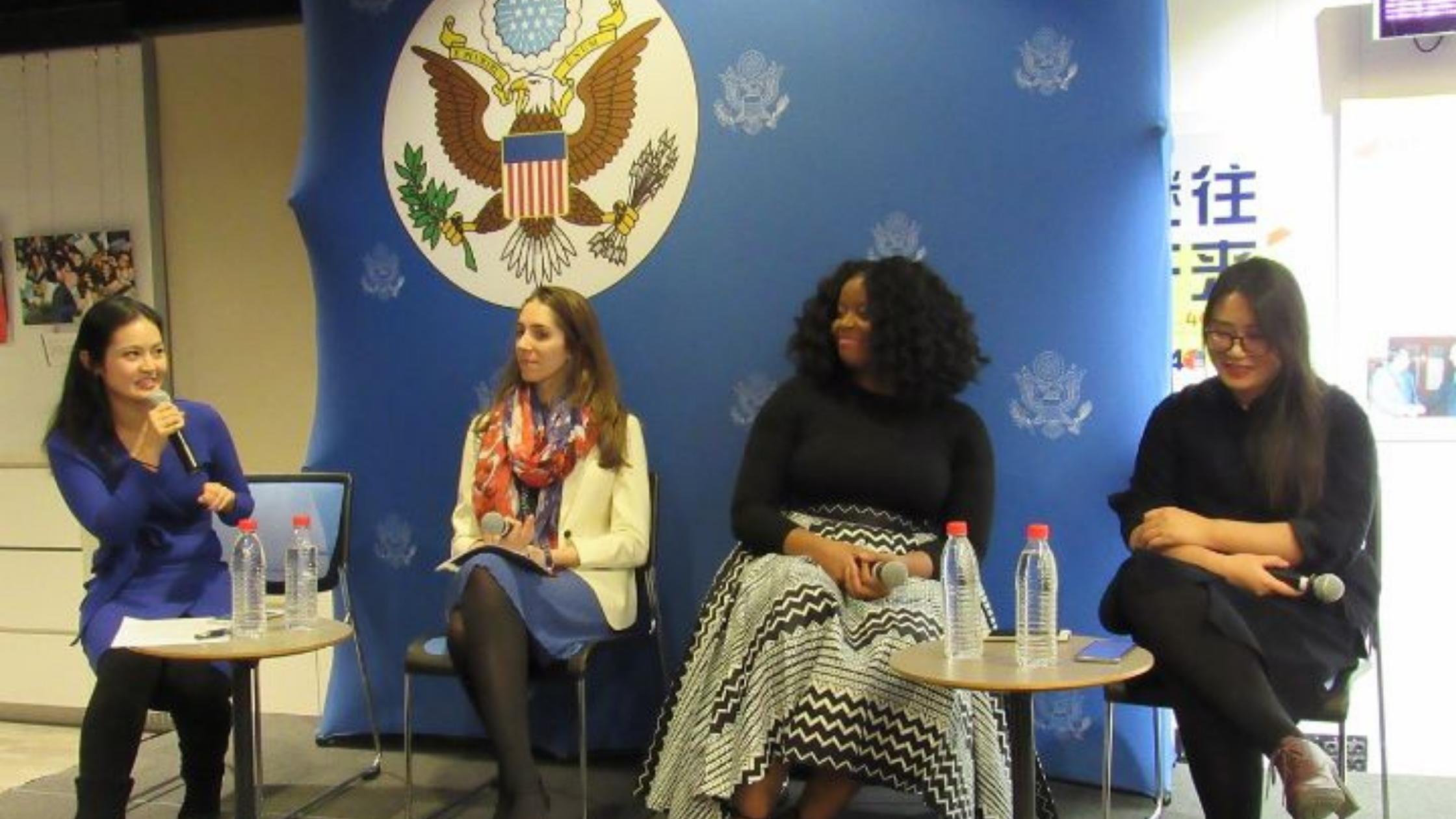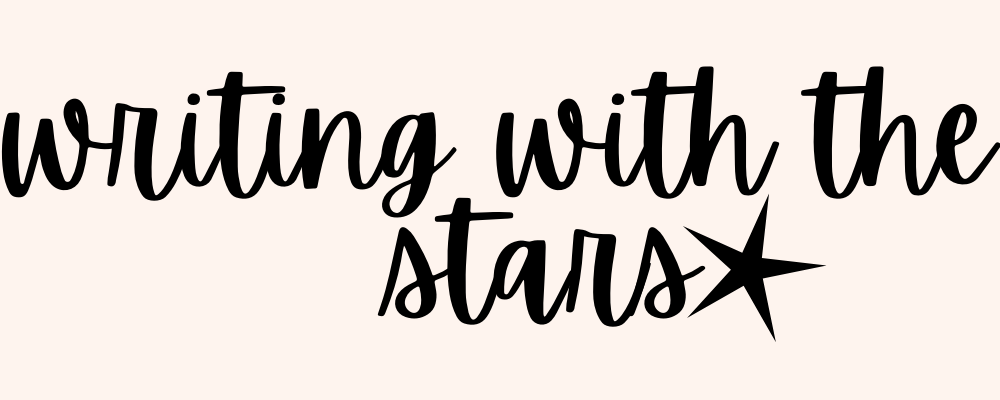Have you ever decided to try something out completely by impulse and then started regretting that decision almost immediately?
Well…that was me during the first interview I ever had in my life.
How It All Started

Unlike my friends who decided to head straight into college after high school, I decided to take a gap year to study Mandarin-Chinese in Beijing.
I was conversational at best but thought it’ll make me immensely more “cool” and interesting if I took some time off before college to travel and learn a foreign language.
I mean that’s how all the cliché, sweep you off your feet, romantic dramas start off right? Did anyone watch Emily in Paris? Well, that’s exactly what I did.
Everything started out fairly normal. I enrolled in my classes, met my teachers, and bonded with some other international students.
Then, as I was about to head home after my first week of Mandarin classes, a Chinese student spotted my classmates and I walking out of class and stuffed a flyer into my hands. He said, “Come and join ASIC!” and then promptly walked off to pass out more flyers.
I didn’t think much about it since I figured he was just trying to meet his quota. I just stuffed that flyer in the back of my backpack and went home.
A week later when I was looking in my backpack to find a homework assignment, I found that same unremarkable flyer – black and white with a few photos, some logos of Ivy League schools, a few words about international exchanges, and a TON of Chinese that I couldn’t read.
For most people, they would probably have crumpled up that flyer and used it as scratch paper if not throwing it straight into the trash can.
But not me. For some reason, I called up the number on the flyer and told them I was interested in joining. I mean, what better way to learn Mandarin than to join an organization run entirely by native Chinese students?
They responded and asked if I could come in for an interview the next morning and I promptly agreed. MISTAKE #1
The Dreaded One to One Interview

“Hi, Leslie. It’s a pleasure to meet you. Can you please tell me why you’re interested in joining ASIC?”
That was the first question the Chinese interviewer asked me and almost immediately, I started sweating bullets. Why was I interested in ASIC?! I didn’t even know what ASIC is. I couldn’t read enough of the flyer to even figure out what ASIC was? MISTAKE #2
Don’t walk into an interview without doing research on what you’re actually interviewing for.
Since I remembered that the flyer mentioned something about student exchange programs and communication, I winged an answer and told her that I wanted to join ASIC to gain more opportunities to engage in international communication and practice my Mandarin.
“That’s great to hear. The majority of all the work we do in ASIC will be conducted in Mandarin so it’s crucial that your Mandarin is good enough,” the interview responded and scribbled something onto her notepad. MISTAKE #3
Don’t interview for an opportunity without knowing what skills are required, especially if it’s a language skill.
She then, of course, switches the interview into Mandarin.
“Imagine that a group of international students and faculty members arrive in Beijing to visit our university. The university then assigns ASIC to organize a one –day tour of our campus. Where would you take them and why?”
CRAP! I haven’t had a chance to thoroughly visit the university campus yet and barely know any history of the university.
In an attempt to buy myself some time before I respond, I decided to try to dig the answers out of her. Maybe if I ask enough questions, she’ll be able to give me a partial clue into what they’re looking for?
“What a great opportunity to showcase our university to these students and faculty! But in order to give you a better quality answer, it would be helpful if you give me a bit more information. Who are these students exactly and why are they visiting China?” I asked.
“It doesn’t matter who they are. Just imagine that they’re a group of students and faculty from a prestigious university in Sweden,” the interviewer responded looking a bit frustrated at me.
I decided to keep pressing since I still couldn’t come up with a good answer. “I see…well, why are they visiting us specifically then? What are they hoping to learn?”
“Again, it doesn’t really matter. Just use your own imagination,” she said with a hint of annoyance in her voice.
Hearing what she said, I could have sworn that she was totally onto what I was doing now. I better say something smart or this interview is over.
In broken Mandarin, I responded with, “Well…then. I would bring them to the university library…since it’s such a historic piece of architecture.
And then…I um…think I will bring to an actual class so they can get a sense of how our classes operate. And then…maybe I’ll end the day by bringing them to the university theater to watch a performance before they leave.”
The interviewer stared at me blankly then scribbled more notes onto her notepad. Each scribble made me tense up even more.
“At least it’s over now,” I told myself.
But just when I thought I was finally done with this dreadful interview, she looked up at me and then pointed to a room next door and said, “You can go to prepare for the group interview now.”
GROUP INTERVIEW?! It’s not over yet?! MISTAKE #4
Always try to figure out what the format of the interview will be before you meet your interviewer. You don’t want to be caught off-guard. If the interviewers don’t tell you beforehand, make sure you ask. It is your right to know.
The Surprise Group Interview

I forced a smile on my face, took a deep breath, and opened the door into the separate room for the group interview.
As the door swung open, it revealed a large room with a rectangular table and a whiteboard at the center surrounded by a horseshoe-formation of around 20 interviewers. I saw 8 nervous-looking students sat at the rectangular table and realized what was happening.
All the interviewers and observers were going to encircle us in the middle and scrutinize our every move. We were walking into the interview equivalent of a military siege.
Before I could find my bearings, an interviewer gestured me to an empty seat in the middle and I braced myself for the worst.
Once I sat down, the same interviewer placed a small slip of paper on our table along with some whiteboard pens. Then he explained how this interview will work.
“When I start the timer, you can flip this slip of paper over, read the prompt, and come up with a joint proposal for how to tackle the prompt. You will have 15 minutes to discuss your ideas and feel free to use the pens and whiteboard. After 15 minutes, you will give a 5-minute presentation on your final proposal. “
“Any final questions?” he added.
We looked around nervously at each other and shook our heads. Then he started his timer and all hell broke loose. The 8 other students flipped over the slip of paper and read the prompt out loud to each other in rapid Mandarin.
All I heard were the words “high-level visit” and “7 days.” Completely confused about what we were supposed to be tackling, I tried to ask the other students to read the prompt again but it was too late.
They were off spitting out ideas like rapid-fire and scribbling ideas onto the whiteboard in messy, illegible Chinese.
Actually, I don’t know if their handwriting was actually illegible or I just didn’t know any of the characters they were actually writing. I mean, I still had no idea what the assignment was. MISTAKE #5
Did I mention not to walk into an interview where you can’t even figure out what the interview question is? Well, try not to do what I did before it it’s too late.
As they continued to debate and discuss among themselves, I got ahold of the slip of paper with a prompt on it and tried to decipher what objectives we were trying to accomplish.
Then I tried really hard to focus and listen to their discussion. They started talking about how they wanted to showcase a “new and improved” to these foreign visitors, one that was modernized, westernized, and developed.
Then they started listing out all these ideas of where to take the guests that will be visiting: Western Art Museums, Foreign Embassies, the Olympic Stadium, and Sanlitun (a nice downtown area in Beijing).
At this point, I knew that I was doomed if I didn’t make an effort to participate or at least look like I was trying to contribute. So I huddled up against all the other students and tried to give some suggestions – any suggestions that I could come up with.
Maybe we should have a free day where we can help the visitors customize their day? Maybe we should do something more academic as opposed to so much sightseeing?
Some of them took on my suggestions warmly but I was largely ignored by the group either because they couldn’t actually understand me with my Chinese or they just didn’t know how to incorporate my ideas in there at the last minute.
Before we could finish all our discussions, the interviewer’s alarm went off. Not it was time for us to present our ideas.
How in the world was I going to help present a proposal that I could not read, that was about a prompt that I still couldn’t figure out, in a language that I was barely conversational in?
My gosh…I’m going to completely humiliate myself.
The Presentation

I couldn’t tell if the interviewers were impressed or completely horrified as their expressions twisted into a mix of shock and disbelief after they heard my presentation.
Moments before this, the rest of my teammates each took turns describing a different day on our proposal, leaving me to talk about the very last day.
Since Mandarin is their native language, they were all extremely eloquent and used a whole host of big fancy words and concepts during their presentations.
Most of which I had no idea what they were talking about. If I didn’t feel completely out of my depth before, I certainly did now.
And maybe because they knew that my language skills were limited and figured that I was the “weakest link,” they assigned me to talk about a free day that basically had nothing to really talk about.
Feeling completely disheartened and self-conscious, I was really close to just walking out of the interview. Every second of it felt humiliating.
But somehow, in the final moments, before I had to speak, I decided that even if I was doomed to fail this interview then I wasn’t going down without a fight.
I was going to fight till the end. So that’s what I did.
In the last few seconds, before it was my turn to speak, I ravaged my brain for whatever good ideas I could come up with to share and I decided to take a huge risk and go with the first one that came to mind.
I gave up trying to do my presentation entirely in Mandarin, I was going to do it in Chinglish.
“In addition to all the exciting activities that the rest of my team talked about, I also propose to have a ‘free day’ built into the program.
The reason for this is that even though we came up with a great program that showcases a modern China, this is not necessarily the China that our visitors want to see.
This is the China that you want them to believe in.
And in doing so, we’ve all forgotten how to cherish and appreciate and take pride in the history of China and our university. We are not a generic modern country, we are a country with history and culture and diversity.
That’s what makes us unique and is what we should not be afraid to show even if it makes us feel vulnerable.
Yes, China is still developing and may have faces and layers that are not so pretty but that is who we are and we own it.
I don’t know what we can do to fill in for this free day, but it will need to be something more central to who we are as opposed to what we want them to see.”
The moment I finished speaking, I was met with a wide range of reactions from the interviewers. Some looked flabbergasted, some looked confused, some looked offended, and some looked impressed.
And then there were a few whose expressions kept cycling between those four different emotions.
Once the shock subsided, the interviewers promptly thanked us and told us to await the results of our interview over email.
What It Lead Me To

A few days after the semi-traumatic interview, I received an email that notified me that I was officially accepted into ASIC — the Association for Student International Communication.
I also later found out that I was also the first international student to be accepted into ASIC.
And lucky for me, ASIC turned out to be one of the most influential and well-resourced student organizations on campus so it became a monumental springboard into my international career before I even started college.
It literally gave me a golden ticket into a buffet of international opportunities and exchange programs.
From hosting reputable professors from schools like the University of Wisconsin-Madison and Japan’s Tohoku University to an all-expense paid exchange program to Switzerland, Germany, and France.
Not to mention, all of this was just in the short gap year I spent in China.
In the years following that, I continued my relationship with ASIC and helped organize multiple exchange programs between some of the most prestigious universities in the world including Tsinghua University, Peking University, Hong Kong Polytechnic University, and Harvard University.
All of these experiences later helped propel me into a highly-favorable position to win a ton of scholarships in college!
But more importantly, it taught me some important lessons about how to better prepare for an interview, and if I were to slip into another tricky interview, how I can potentially save myself.
Key Learnings

Tip #1: Do not get fazed if you realize that you don’t fit all of their criteria
Don’t follow in my footsteps. Make sure that you do extensive and thorough research before you even walk in for your interview.
But sometimes no matter how much research you’ve conducted, you still find yourself completely out of your own depth in the middle of the interview.
In which case, the best thing you can do for yourself is to try to maintain your composure and don’t let your perceived inadequacies faze you.
Yes, there are often some key skills or experiences that your interview will consider vital for the position you’re interviewing for.
But there can be a bit of wiggle room to learn these skills after you’ve been accepted, especially if you can bring another set of skills or character to the table that is equally valuable.
Tip #2: Take Advantage of the Group Interview
If the interview process includes a group interview, make sure you take advantage of it!
Often times, it can be difficult for your interviewer to gauge your abilities in a one to one interview without comparing it to other candidates.
On your own, you may not wow them but their opinion of you can change depending on the skill sets and abilities of other candidates relative to you.
And this comparison is more clear than ever in a group interview. So make sure you take advantage of the group interview to try to stand out but not at the expense of your other teammates.
In fact, you want to make sure you work as best as you can with your team because a good team will help you hide your weaknesses (like my language skills) and can also help you emphasize your strengths (like my ability to think differently than native Chinese students).
Tip #3: Dare to Be Different!
Whether you like to admit it or not, the truth is that we’re all inherently terrified of being different because it makes us feel vulnerable to being excluded, ostracized, or bullied.
But at the same time, being different is the only way you can stand out and leave a strong memorable impression on your interviewers.
So if you have unique attributes that other candidates are unlikely to have or if you can provide a perspective that is different than everyone else in the room, use it!
Fight your urge to suppress what makes you different and embrace what makes you special.
Tip #4: Figure Out What it is They Are Looking for and Tailor Your Answers to it
This tip is fairly straightforward and often comes up in interview guides.
When you can’t figure out the best way to answer a question see if you can dig up more information from your interviewer that can give you some more clues or insights into the answer(s) they are looking for.
This is a bit similar to what I did with my interviewer in my one to one ASIC interview.
But be prepared, this tactic may not always work. If you come up against a highly seasoned interviewer, they will be able to tell that you’re deflecting or trying to dig the answers out of them.
And when that happens, you want to take on a deeper approach into trying to figure out what they are looking for and provide them with an answer that is one of a kind and impactful.
You can do this by trying to figure out what their ultimate objective is.
What is it that they are looking for but is not telling you? Are there any blind spots or weaknesses they are unaware of that you can point out to them? And how are they evaluating your answers?
Let’s take my ASIC group interview as an example. The prompt they gave us was to create a 7-day program to host a group of visiting professors and students.
What is it that they are looking for but is are not telling you?
It wasn’t stated, but there was an underlying sense from both the interviewers and the Chinese students I interviewed with that they wanted to create a program that really impressed the visitors.
And the interviewers wanted to see what we would put together to blow the socks off of our visitors.
Are there any blind spots or weaknesses they are unaware of that you can point out to them?
All the Chinese students on my team too preoccupied with trying to create a program that would really impress these visiting professors and students.
Because of that, they overlooked what a group of foreigners would actually want to see in China as opposed to what they wanted to show the visiting professors and students.
Tip #5: Be Sincere and Confident (fake it till you make it)
Last but not least, when you feel like you’re struggling in an interview try your best to stay composed and confident.
Recognize that you may not know all the answers but don’t give up. Stay confident and keep fighting!
Remember, you’re not only interviewing for the present. You’re also interviewing for the future. If you were to be accepted into whatever program, school, or job you’re interviewing for, your original interviewer may become your colleague or mentor.
In which case, the impression you make on your interview will continue to affect the relationships you build afterward.
And even if the interviewer doesn’t think you’re a good fit at the moment, if your performance in the interview is pleasant enough, it may lead your interviewer to consider you again at a later date.
Who knows? They may waitlist you, invite you in for another interview a year later, or they may even reach out to you directly when a new opportunity comes up that better suits you.
You NEVER know. So make sure you interview with everything that you got!




